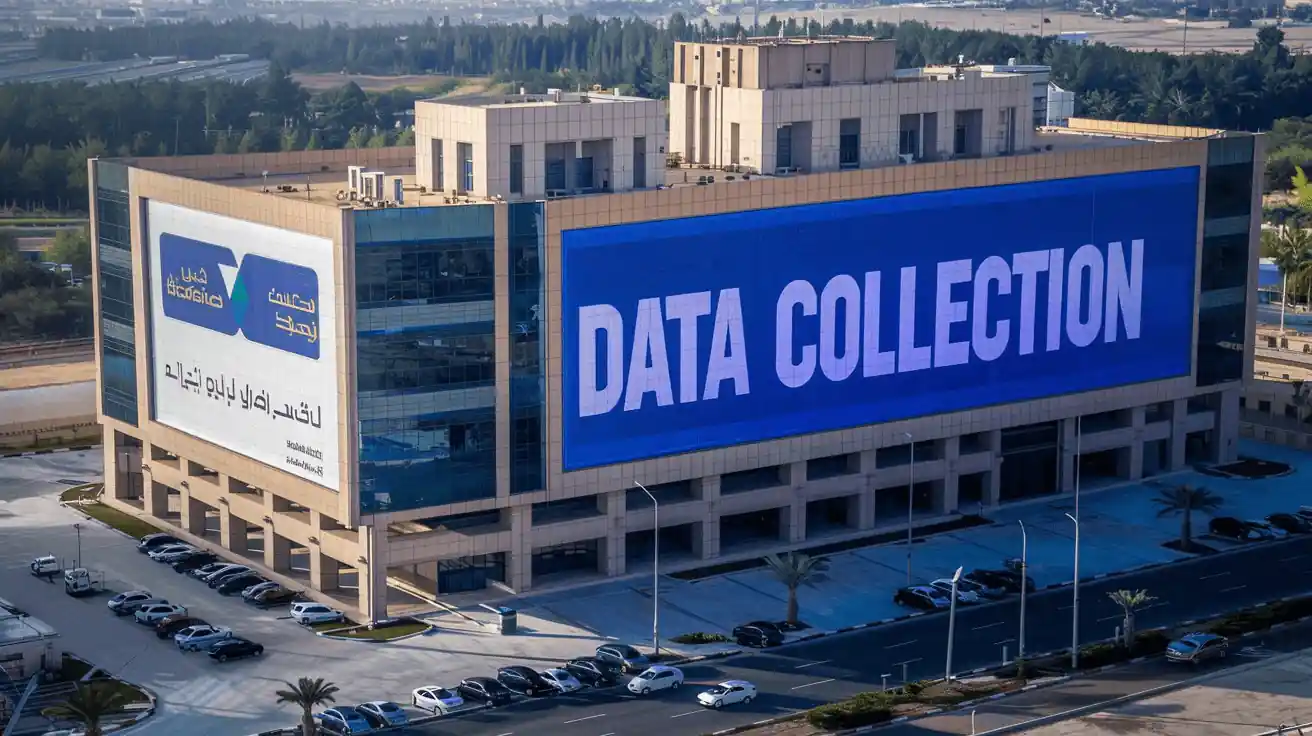No products in the cart.

In today’s data-driven world, the significance of data collection cannot be overstated. For businesses across various sectors, gathering accurate and actionable data is crucial for making informed decisions and staying ahead of the competition. Data collection companies in KSA, play a pivotal role in harnessing this data to fuel business strategies and support national development goals.
Understanding Data Collection
What is Data Collection?
Data collection involves the systematic gathering of information to address specific questions or needs. It encompasses various methods and techniques designed to capture relevant information from diverse sources.
Types of Data Collection
Qualitative Data
Qualitative data refers to non-numerical information that provides insights into underlying motivations, attitudes, and experiences. Methods for collecting qualitative data include interviews, focus groups, and observations.
Quantitative Data
Quantitative data, on the other hand, involves numerical information that can be measured and analyzed statistically. Surveys, questionnaires, and data analytics tools are commonly used to collect quantitative data.
Data Collection Companies in Saudi Arabia
Growth of Data Collection Industry
The data collection industry in KSA has witnessed significant growth, driven by the increasing need for data-driven decision-making across various sectors, including healthcare, finance, and retail. This expansion aligns with Saudi Arabia’s broader economic diversification efforts under the Vision 2030 initiative.
Role in Saudi Vision 2030
Saudi Vision 2030 emphasizes the importance of data and digital transformation in achieving economic diversification and enhancing government efficiency. Data collection companies are integral to this vision, supporting sectors such as smart cities, digital health, and education.
Major Data Collection Companies in KSA
Ibrid Insights: Overview and Services
Ibrid Insights is a leading player in the KSA data collection market, offering a range of services including market research, customer insights, and data analytics. Their expertise in leveraging advanced technologies ensures high-quality data collection and analysis.
Think Positive+: Overview and Services
Think Positive is a prominent company in KSA for data collection landscape. The company offers comprehensive services, including market research, consumer behavior analysis, and data-driven insights tailored to various industries. With a commitment to utilizing cutting-edge technology and methodologies, Think Positive+ provides valuable data solutions that support strategic decision-making and business growth.
Rayat Research: Overview and Services
Rayat Research specializes in demographic and socio-economic research. Their services cater to both governmental and private sector clients, providing valuable insights for policy-making and strategic planning.
IDS Research: Overview and Services
IDS Research focuses on data collection for the healthcare sector. They offer services such as patient surveys, clinical trial data collection, and health data analytics, contributing to improved healthcare outcomes in KSA.
Regulatory Framework of Data Collection Companies
Data Protection Laws in KSA
In KSA, data protection is governed by the Personal Data Protection Law (PDPL), which sets out the legal framework for handling personal data. Companies must comply with these regulations to ensure data privacy and security.
Compliance Requirements for Data Collection Companies
Data collection companies must adhere to strict compliance requirements, including obtaining consent from individuals, ensuring data accuracy, and implementing robust security measures to protect data from unauthorized access.
Technological Innovations
Role of Technology in Data Collection
Technological advancements have revolutionized data collection, making it faster and more efficient. Tools such as data management platforms, automated data collection systems, and advanced analytics software play a crucial role in this transformation.
Emerging Technologies in Data Collection
Emerging technologies, including artificial intelligence (AI) and machine learning, are further enhancing data collection processes. These technologies enable predictive analytics, real-time data processing, and more accurate insights.
Challenges Faced by Data Collection Companies
Data Privacy Concerns
Ensuring data privacy is a significant challenge for data collection companies. With increasing scrutiny on data protection, companies must implement stringent measures to safeguard sensitive information.
Data Accuracy and Quality
Maintaining data accuracy and quality is another challenge. Companies need to employ rigorous validation techniques and quality control processes to ensure the reliability of collected data.
Cultural and Linguistic Barriers
In KSA, cultural and linguistic differences can pose challenges in data collection. Companies must be aware of these factors to design surveys and research methods that are culturally appropriate and effective.
Opportunities for Growth
Expanding Markets
The growing demand for data-driven insights presents opportunities for data collection companies to expand their services and enter new markets. This includes exploring emerging sectors and geographic regions.
Integration with AI and Machine Learning
Integrating AI and machine learning into data collection processes offers opportunities for enhanced data analysis, improved accuracy, and more actionable insights. Companies that embrace these technologies can gain a competitive edge.
Case Studies
Successful Data Collection Projects in KSA
Several data collection projects in KSA have demonstrated the value of comprehensive data gathering. These case studies highlight successful implementations and the impact of data-driven decisions on various sectors.
Lessons Learned from Case Studies
Analyzing these case studies provides valuable lessons for other companies in the industry. Key takeaways include the importance of adapting to local contexts, leveraging technology, and maintaining high standards of data quality.
Future Trends in Data Collection
Predicted Developments
The future of data collection in KSA is likely to be shaped by continued technological advancements, evolving regulatory requirements, and increasing demand for personalized insights. Companies must stay abreast of these trends to remain competitive.
How Companies Can Prepare
To prepare for future developments, data collection companies should invest in new technologies, enhance their data management capabilities, and continuously adapt to changing market needs and regulatory environments.
Conclusion
Data collection companies in KSA play a crucial role in supporting the country’s economic and technological growth. By understanding the industry’s landscape, addressing challenges, and embracing opportunities, these companies can contribute significantly to Saudi Arabia’s Vision 2030 goals. As the industry evolves, staying informed and adaptable will be key to achieving success in the dynamic data collection sector.
FAQs
What are the key regulations for data collection in KSA?
Key regulations include the Personal Data Protection Law (PDPL), which mandates strict guidelines for data handling, privacy, and security.
How do data collection companies ensure data privacy?
Companies ensure data privacy through measures such as obtaining explicit consent, implementing robust security protocols, and adhering to regulatory requirements.
What technologies are currently transforming data collection in KSA?
Technologies such as AI, machine learning, data management platforms, and automated systems are transforming data collection by enhancing efficiency and accuracy.
Can small businesses benefit from data collection services in KSA?
Yes, small businesses can benefit from data collection services by gaining valuable insights that can drive decision-making, improve strategies, and enhance competitiveness.
What are the main challenges for data collection companies in KSA?
Main challenges include ensuring data privacy, maintaining data accuracy, and addressing cultural and linguistic differences in research methods.
Previous Post
DBA Data Collection Companies in UAE
 Demos
Demos  Docs
Docs  Support
Support 




